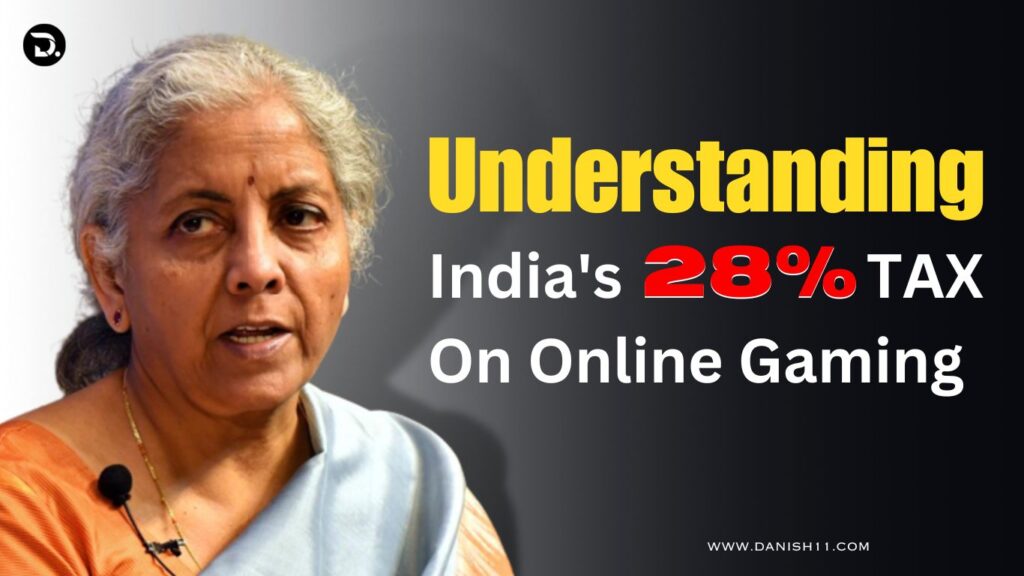Tax on Online Gaming: Understanding India’s 28%

Table of Contents
Tax On Online Gaming Introduction:
In recent years, online gaming has experienced a massive surge in popularity worldwide, including in India. With the growth of the online gaming industry, governments around the world have started implementing regulations and taxation policies to address the economic impact and potential revenue streams. In India, the imposition of a 28% tax on online gaming has sparked discussions and debates among gamers and industry experts alike. In this blog, we will delve into the details of this tax and explore its implications for the Indian gaming landscape.
28% Tax on Online Gaming:
In India, the 28% tax on online gaming falls under the Goods and Services Tax (GST) framework, introduced in July 2017. GST is an indirect tax levied on the supply of goods and services, aiming to streamline the country’s tax structure. Online gaming, being a service, falls within the purview of GST.
The 28% tax rate is the highest slab in the GST system, reserved for luxury goods and services. Initially, the gaming industry was subject to an 18% GST rate. However, in December 2017, the GST Council raised the tax rate to 28%, considering online gaming as an entertainment service falling in the luxury category.
You Can Read This Post Also:
The Future of Fantasy Cricket in India: Where Imagination Meets Reality
Implications for Online Gamers:
The imposition of the 28% tax on online gaming in India has sparked concerns among gamers. One significant implication is the potential increase in the overall cost of gaming. With the additional tax burden, gamers may have to spend more to purchase in-game items, subscriptions, or participate in online tournaments.
Furthermore, the increased tax rate may discourage casual gamers from exploring the online gaming realm, as the elevated costs could make it less affordable. This, in turn, might hinder the growth and accessibility of the online gaming industry in the country.
Industry Impact
The Indian online gaming industry has experienced remarkable growth in recent years, attracting both domestic and international players. The 28% tax rate poses challenges for the industry’s growth trajectory. Start-ups and smaller gaming companies may face financial constraints due to the higher tax burden, hindering their ability to invest in innovation and infrastructure.
Moreover, the increased tax rate may impact investor sentiment in the gaming industry. Investors may become more cautious about funding gaming ventures, as the tax burden affects the overall profitability and return on investment.
Government’s Perspective:
From the government’s perspective, the imposition of the 28% tax on online gaming can be seen as a measure to generate revenue and regulate the industry. With the rapid growth of the online gaming sector, the government aims to tap into its economic potential. The tax revenue generated from the industry can be utilized for various developmental initiatives in the country.
Additionally, the tax policy could be a way to differentiate online gaming from other forms of entertainment and establish a clear regulatory framework for the sector. By treating it as a luxury service, the government aims to bring online gaming under the purview of taxation similar to other forms of entertainment like movie tickets or amusement parks.
You Can Follow This YouTube Channel for More Such Type of Content:
Conclusion:
The imposition of a 28% tax on online gaming in India has raised concerns among gamers and industry stakeholders. While the tax policy is intended to generate revenue and regulate the industry, it may have unintended consequences such as increased costs for gamers and financial challenges for gaming companies.
As the online gaming industry continues to evolve, it is crucial for policymakers to strike a balance between revenue generation and fostering a conducive environment for growth and innovation. The tax rate could be revisited, considering the long-term potential of the industry and the interests of all stakeholders involved.
